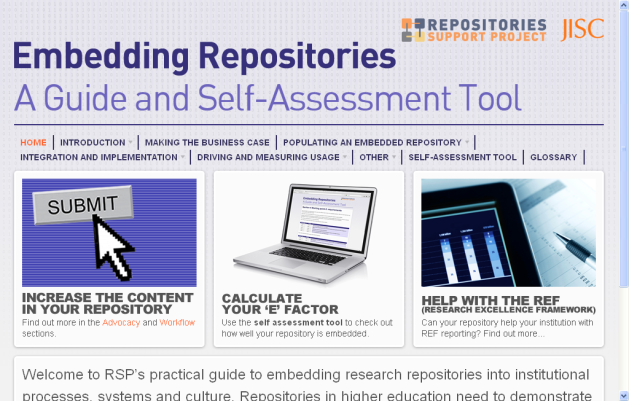September 22, 2011
by Jackie Wickham

On Tuesday, I attended the JISC Research Information Management (RIM) Projects Final Event at the Manchester Conference Centre. This showcased the work of the four Strand 2 projects:
- Brunel Research Under a CERIF Environment (BRUCE) – Brunel University
- CERIFy – UKOLN and Trinity College, Dublin
- Measuring Impact under CERIF (MICE) – Centre for e-Research (CeRch), Kings College London
- Integrated Research Input and Output System (IRIOS) – University of Sunderland
At the risk of stating the obvious, all the projects used CERIF as a means of improving the management of research information.
I really liked the format of the day where, after an introduction from Josh Brown (JISC Programme Manager) who outlined the importance of effective research management and the benefits of CERIF, the projects made a 10 minute pitch to entice us to attend a more in depth parallel session (delegates could attend two of four during the day).
After coffee, I went to CERIFy led by UKOLN and Trinity College, Dublin with the following partners: Aberystwyth University, University of Huddersfield, University of Bath, Queens’s University, Belfast and Thomson Reuters. The project started with the premise that people are not interested in standards but want effective and efficient processes that provide meaningful outputs – they will engage with the standard if it does this. The project began with getting each institution to identify the key RIM business processes and there was a clear consensus for: pre-award management, benchmarking, measuring esteem and bibliographic data exchange (Incites from Thomson Reuters). The presenters highlighted that the process of gathering this provided useful insights into the perspectives of different individuals and departments and is well worth any institution carrying out – all the documentation will be made available on the project website.
A decision was taken to focus on Incites and Measuring Impact. During the course of the project, CERIF was used to enable the exchange of information between an institution and Incites with the end result that information such as impact factors and citation data can be pulled into research management systems.
I then chose the IRIOS Project for my second workshop. This has developed a proof of concept demonstrator based on the Universities for the North East Information System (UNIS) platform for a CERIF compliant “grants on the web” system for Research Council (RC) funded projects. The UNIS system is well established and tracks community and business engagement for universities in the North East. The team saw similarities between the core concepts of CERIF and UNIS – Person, Project, Organisational Unit in CERIF and Contact, Project and Organisation in UNIS. The project has provided access to Research Council funded projects in CERIF format – linking grants to publications.
The day was rounded off by two non project presentations. Simon Kerridge from the University of Sunderland outlined the RMAS project which aims to set up a procurement process for cloud based research management and administration modules: Academic expertise, Funding Sourcing, Proposal Management, Costing and Pricing, Customer Relationship Management, Post Award Management. Outputs and Outcomes, Reporting/Submission/Interfaces. Institutions will be able to source various modules to meet their own needs and complement their existing services and functionality.
The final presentation was by Dale Keenan from the Economic and Social research Council about a project to standardise RCUK reporting systems. The ESRC existing tool has been developed to provide the platform for four of the RCs and will be launched in Oct/Nov this year. RCUK has agreed in principle to move towards a standard system for all RCs within the next 3-5 years.
And why the cat picture? Have you tried looking for images relevant to research information management?





